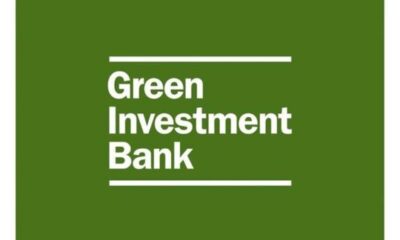

Invest
Investors to benefit from standard revenue reporting
A new standard on the recognition of revenue from contracts with customers is set to improve financial reporting of revenue and make it easier for investors to compare financial statements globally. It has been described as a “milestone” for fully integrated reporting.
The International Accounting Standards Board (ISAB), responsible for the Internal Financial Reporting Standards (IFRS), and the Financial Accounting Standards Board (FASB), responsible for US Generally Accepted Accounting Principles (GAAP), issued a joint statement.
The organisations said revenue is a “vital metric” for users of financial statements as it is used to assess the company’s financial performance and prospects. Previous requirements often led to different accounting for transactions that were economically similar.
Revenue requirements of IFRS were considered to lack sufficient detail, whilst the US GAPP was thought to be overly prescriptive and conflicting in certain areas. The new standard responds to these challenges and aims to provide consistency.
Russell Golden, chairman of the FASB, said, “The revenue recognition standard represents a milestone in our efforts to improve and converge one of the most important areas of financial reporting. It will eliminate a major inconsistency in GAAP, which currently consists of numerous disparate, industry-specific pieces of revenue recognition guidance.
“The issuance of this standard is a major first step, but it is not the end of the process.”
The core principle of the new standard is for companies to recognise revenue to depict the transfer of goods or services to customers in amounts that reflect the payment. A joint transition resource group has been established to aid in the transition to the new standard.
The standard is a vital step towards making company reports more comparable, Seb Beloe and Ted Franks, head of sustainability research and associate fund manager respectively at WHEB Asset Management, commented.
They said, “This is good news and should be helpful in enabling investors to more directly compare revenue numbers. It is an issue that we come across in companies we look at – particularly because as global investors we can and do compare competitors operating in these different jurisdictions.”
This could be a stepping-stone to providing fully integrated sustainably information to investors, they continued. Whilst many companies are already reporting non-financial information such as carbon emissions and health and safety data in increasingly comparable ways a clear global standard has yet to be adopted.
Beloe and Franks added, “We also see it very much as milestone on the journey towards fully integrated reporting. It took 500 years to get basic financial accounting standards adopted, it will be years – though tens rather than hundreds of years – before we get sustainability reporting standards developed and endorsed by regulators.”
Photo: reynermedia via Flickr
Further reading:
Online platform allows social investors to compare social enterprises
90% of investors say CSR and sustainability reports are ‘essential’
EU vote on non-financial reporting ‘historic’ for sustainable investment
Report: responsible investment ‘increasingly important feature’ across EU






























